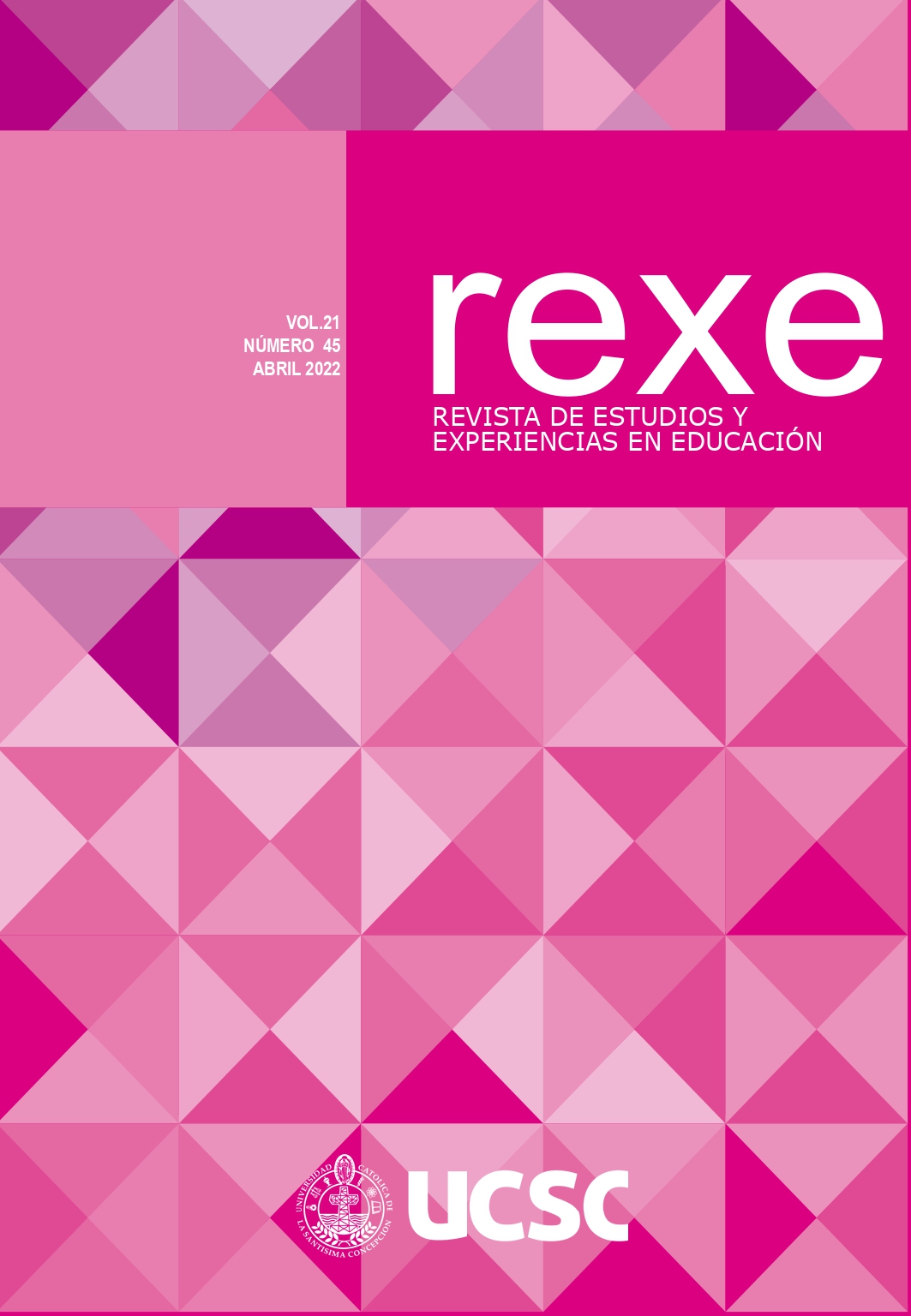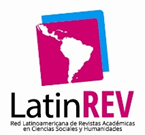Estudio del discurso pedagógico: enfoque bernsteniano clásico y revisiones actuales sobre un modelo de análisis para la investigación de la pedagogía puesta en acto
DOI:
https://doi.org/10.21703/0718-5162.v21.n45.2022.021Abstract
El modelo teórico de Basil Bernstein se refiere, principalmente, a la producción y análisis del discurso pedagógico. Es uno de los enfoques más relevantes de la sociología crítica de la educación en el siglo XX, ya que su tesis central se refiere tanto a la naturaleza como a los procesos de transmisión cultural y al papel que juega en ellos el lenguaje en los contextos de producción y reproducción como el de la educación. El discurso pedagógico se comprende como las reglas que regulan la producción, distribución y cambio del conocimiento transmitido en la escuela. Se enmarca en el desarrollo producido sobre la comprensión estructural de las desigualdades que se producen en la enseñanza escolar y que se explican por diferencias de clase social, poder y control. A través de una sistematización teórica, el siguiente trabajo desarrolla una descripción del modelo clásico sobre el discurso pedagógico, su campo de producción teórico y cómo se ha concebido en una serie de investigaciones en base a las miradas actuales del campo de producción bernsteniano y discute las posibilidades y aplicación de este marco de investigación en el campo de los estudios sobre el discurso pedagógico.
Downloads
References
Alves, V. y Morais, A. (2012). A sociological analysis of science curriculum and pedagogic practices, Pedagogies: An International Journal, 7(1), 52-71, doi: 10.1080/1554480X.2012.630511
Apple, M. (2002). Basil Bernstein's Theory of Social Class, Educational Codes and Social Control. British Journal of Sociology of Education, 23(4), 525-526. doi:10.1080/0142569022000038378
Arnot, M. (2002). The Complex Gendering of Invisible Pedagogies: social reproduction or empowerment?. British Journal of Sociology of Education, 23(4), 583-593. doi:10.1080/0142569022000038431
Arnot, M., y Reay, D. (2007). A Sociology of Pedagogic Voice: Power, inequality and pupil consultation. Discourse: Studies in the Cultural Politics of Education, 28(3), 311-325. doi:10.1080/01596300701458814
Ball, S. y Vincent, C. (2007). Education, Class Fractions and the Local Rules of Spatial Relations. Urban Studies, 44(7), 1175-1190. doi:10.1080/00420980701302312
Barrett, D. (2017). Bernstein in the urban classroom: a case study. British Journal Of Sociology Of Education, 38(8), 1258-1272. doi:10.1080/01425692.2016.1269632
Bernstein, B. (1974). Clases, códigos y control, Vol. 1. Theoretical studies towards a sociology of language. London: R.K.P.
Bernstein, B. (1977). Clases, códigos y control, Vol. 3. Londres: Routledge y Kegan Paul.
Bernstein, B. (1981). Codes, Modalities and the process of cultural reproduction: A model. Anglo American Studies, Vol. 1.
Bernstein, B. (1990a). La estructura del discurso pedagógico. Clases, código y control, vol. 4. Madrid: Morata.
Bernstein, B. (1990b). Poder, educación y conciencia. Sociología de la transmisión cultural. Barcelona: El Roure.
Bernstein, B. (2000). Vertical and horizontal discourse: an essay. British Journal of Sociology of Education, 20(2), 157-173. doi:10.1080/01425699995380
Bolander, B. & Watts, R. (2009). Re-reading and rehabilitating Basil Bernstein. Multilingua, 28(2/3), 143-173. doi:10.1515/mult.2009.008
Bourdieu, P. y Passeron, J. (1970/2008). La reproducción: Elementos para una teoría del sistema de enseñanza. Madrid: Popular.
Brook, B. y Watts, R. (2009). Re-reading and rehabilitating Basil Bernstein. Multilingua, 28(2/3), 143-173. doi:10.1515/mult.2009.008
Christie, F. y Martin, J. (1997). Genre and Institutions: Social processes in the workplace and school. London: Cassell.
Christie, F. (1999). Pedagogy and the Shaping of Consciousness: Linguistic and social processes. London: Continuum.
Cox, C. (1989). Poder, conocimiento y sistemas educacionales: introducción a las categorías de Bernstein. Temps d'Educació, 341-352.
Crompton, R. (1998). Class and Stratification. Cambridge: Polity.
Davies, B. (2001) Introduction, En A. Morais, I. Neves, B. Davies and H. Daniels (Eds) Towards a Sociology of Pedagogy: The Contribution of Basil Bernstein to Research, New York: Peter Lang.
Díaz, M (1985). Hacia una teoría del discurso pedagógico. Revista Colombiana de Educación. 15. 81-121.
Doherty, C. (2015). Understanding classroom trouble through regulative gravityand instructional elasticity. Linguistics and Education. 30, 56–65. doi:10.1016/j.linged.2015.03.009
Ensor, P. (2004). Modalities of teacher education discourse and the education of effective practitioners. Pedagogy, Culture & Society, 12(2), 217-232. doi: 10.1080/14681360400200197
Graizer, O. y Navas, A, (2011). El uso de la teoría de Basil Bernstein como metodología de investigación en didáctica y organización escolar. Revista de Educación, 356(1), 133-158.
Goldthorpe, J. H. (1996). Class analysis and the reorientation of class theory: the case of persisting differentials in educational attainment. British Journal of Sociology of Education, 481-505. doi:10.2307/591365
Hasan, R. (2005), Language, Society and Consciousness. The Collected Works of Ruqaiya Hasan, Vol. 1. London and Oakville: Equinox.
Hjelmér, C., y Rosvall, P. (2017). Does social justice count? 'Lived democracy' in mathematics classes in diverse Swedish upper secondary programmes. Journal of Curriculum Studies, 49(2), 216-234. doi:10.1080/00220272.2016.1138326
Hoadley, U. y Ensor, P. (2009). Teachers' social class, professional dispositions and pedagogic practice. Teaching & Teacher Education, 25(6), 876-886. doi:10.1016/j.tate.2009.01.014
Hoadley, U. y Muller, J. (2010). Codes, pedagogy and knowledge: advances in Bernsteinian sociology of education. En Michael Apple, Stephen Ball and Luis Armando Gandin (Eds.), The Routledge International Handbook of the Sociology of Education. (69–68). Routledge: New York.
Hoadley, U. (2008). Social class and pedagogy: a model for the investigation of pedagogic variation. British Journal of Sociology of Education, 29(1), 63-78. doi:10.1080/01425690701742861
Inghilleri, M. (2002). Britton and bernstein on vygotsky: divergent views on mind and language in the pedagogic context. Pedagogy, Culture & Society, 10(3), 467-482. doi:10.1080/14681360200200154
Ivinson, G., y Duveen, G. (2005). Classroom structuration and the development of social representations of the curriculum. British Journal of Sociology of Education, 26(5), 627-642. doi:10.1080/01425690500293603
Jacklin, H. (2004). Discourse, interaction and spatial rhythms: locating pedagogic practice in a material world. Pedagogy, Culture & Society, 12(3), 373-398. doi: 10.1080/14681360400200208
Leaton, S. (2017). The social construction of time in contemporary education: implications for technology, equality and Bernstein’s ‘conditions for democracy’. British Journal of Sociology Of Education, 38(1), 60-71. doi:10.1080/01425692.2016.1234366
Lee, T. (2018). Revisiting the role of pedagogic contexts in social class analysis: a Bernsteinian approach. International Review of Sociology, 28(1), 133-149. doi:10.1080/03906701.2017.1411310
Lee, T. T., & Chiu, S. W. (2018). Conduit for engagement? School curriculum and youth political participation in Hong Kong. YOUNG, 26(2), 161–178.
Lim, L., y W. Apple, M. (2015). Elite rationalities and curricular form: “Meritorious” class reproduction in the elite thinking curriculum in Singapore. Curriculum Inquiry, 45(5), 472-490. doi:10.1080/03626784.2015.1095622
Loo, S. (2007). Theories of Bernstein and Shulman: their relevance to teacher training courses in England using adult numeracy courses as an example. Journal Of Further & Higher Education, 31(3), 203-214. doi:10.1080/03098770701424900
Loughland, T., y Sriprakash, A. (2016). Bernstein revisited: the recontextualisation of equity in contemporary Australian school education. British Journal of Sociology of Education, 37(2), 230-247. doi:10.1080/01425692.2014.916604
Manison, L. (2015). Talking in class: a study of socio-economic difference in the primary school classroom. Literacy, 49(2), 98-104. doi:10.1111/lit.12040
Marx, K. y Engels, F. (1848/2017). El manifiesto comunista. Barcelona: Herder Editorial.
Maton, K. (2009). Cumulative and segmented learning: exploring the role of curriculum structures in knowledge-building. British Journal of Sociology of Education, 30(1), 43-57. doi:10.1080/01425690802514342
Maton, K. y Muller, J. (2007) A sociology for the transmission of knowledges. En F. Christie and J. Martin (Eds.) Language, Knowledge and Pedagogy: Functional Linguistic and Sociological Approaches. London: Continuum.
McLean, M., y Abbas, A. (2009). The 'biographical turn' in university sociology teaching: a Bernsteinian analysis. Teaching In Higher Education, 14(5), 529-539. doi:10.1080/13562510903186725
Moore, R. (2013). Basil Bernstein: The thinker and the field. Routledge: New York.
Moore, R., Arnot, M., Beck, J., y Daniels, H. (2006). Knowledge, Power and Educational Reform. London: Routledge.
Morais, M. (2002). Basil Bernstein at the micro level of the classroom. British Journal Of Sociology Of Education, 23(4), 559-569. doi:10.1080/0142569022000038413
Muller, J. (2004). Introduction: the possibilities of Basil Bernstein. En Johan Muller, Brian Davies and Ana Morais (Eds.), Reading Bernstein, Researching Bernstein (1–12). Routledge: Londres.
Olin-Scheller, C., y Tengberg, M. (2017). Teaching and learning critical literacy at secondary school: the importance of metacognition. Language & Education: An International Journal, 31(5), 418-431. doi:10.1080/09500782.2017.1305394
Power, S., y Whitty, G. (2002). Bernstein and the Middle Class. British Journal Of Sociology Of Education, 23(4), 595-606. doi:10.1080/0142569022000038440
Reay, D. (2010). Sociology, social class and education. En Michael Apple, Stephen Ball and Luis Armando Gandin (Eds.). The Routledge International Handbook of the Sociology of Education. (396–404). Routledge: New York.
Reay, D. (2017). Miseducation: Inequality, education and the working classes. Bristol: Policy Press.
Sadovnik, A. (1991). Basil Bernstein’s theory of pedagogic practice: a structuralist approach. Sociology of Education, 64 (1), 48-63.
Sadovnik, A. (2001). Basil Bernstein. Perspectivas: Revista trimestral de educación comparada, 31 (4), 687-703.
Sriprakash, A. (2011). The contributions of Bernstein’s sociology to education development research. British Journal of Sociology of Education, 32(4), 521-539. doi: 10.1080/01425692.2011.578436
Straehler-Pohl, H., y Gellert, U. (2013). Towards a Bernsteinian language of description for mathematics classroom discourse. British Journal of Sociology of Education, 34(3), 313-332. doi:10.1080/01425692.2012.71425
Torche, F. y Wormald, G. (2004). Estratificación y movilidad social en Chile: entre la adscripción y el logro. CEPAL N° 98. Serie Políticas Sociales.
Tyler, W. (2004) Silent, invisible, total: pedagogic discourse and the age of information. En Johan Muller, Brian Davies and Ana Morais (Eds.), Reading Bernstein, Researching Bernstein (15–29). Routledge: Londres.
Weber, M. (1905/2012). The Protestant ethic and the spirit of capitalism. New York: Scribner.
Weis, L. (2010). Social class and schooling. En Michael Apple, Stephen Ball y Luis Armando Gandin (Eds.). The Routledge International Handbook of the Sociology of Education. (414–423). Routledge: New York.
Wheelahan, L. (2007). How competency-based training locks the working class out of powerful knowledge: a modified Bernsteinian analysis. British Journal of Sociology of Education, 28(5), 637-651. doi:10.1080/01425690701505540
Yongbing, L., y Huaqing, H. (2009). Regulative discourse in Singapore primary english classrooms: teachers' choices of directives. Language & Education: An International Journal, 23(1), 1-13. doi:10.1080/09500780802152812.
Downloads
Published
Issue
Section
License
Open Access Policy
This journal provides immediate open access to its content, based on the principle that offering the public free access to research fosters greater global knowledge exchange.
License
The REXE Journal, “Journal of Studies and Experiences in Education,” published by the Faculty of Education at the Universidad Católica de la Santísima Concepción, is distributed under a License. Creative Commons Atribución 4.0 Internacional.






